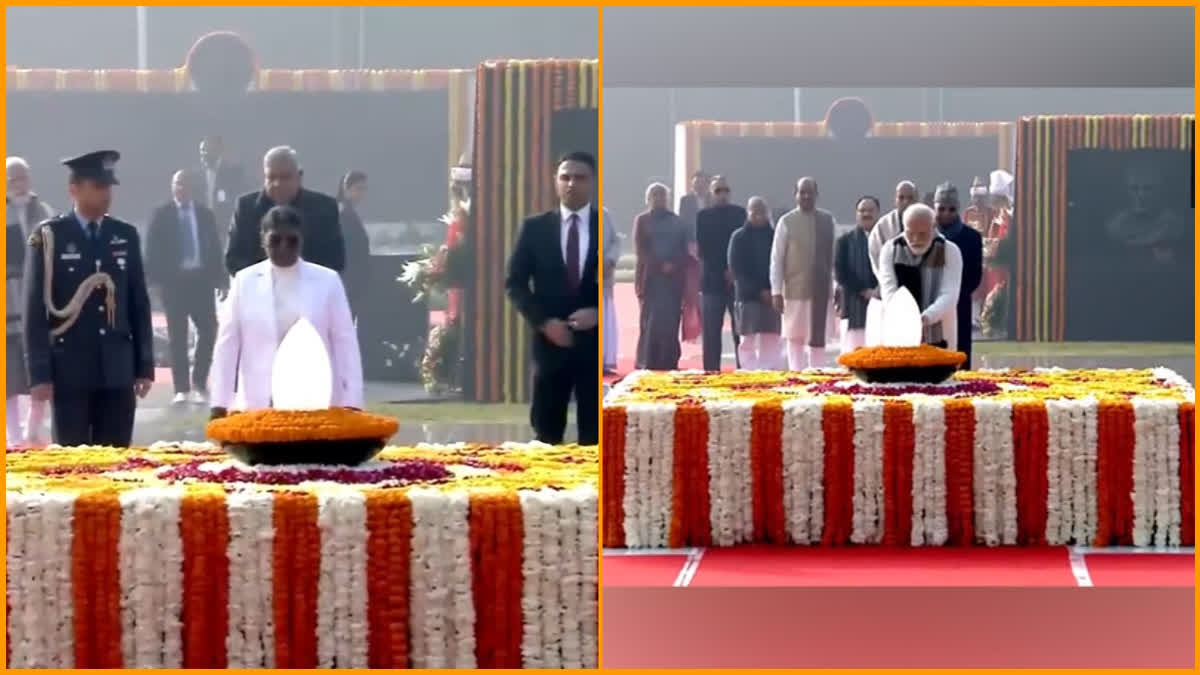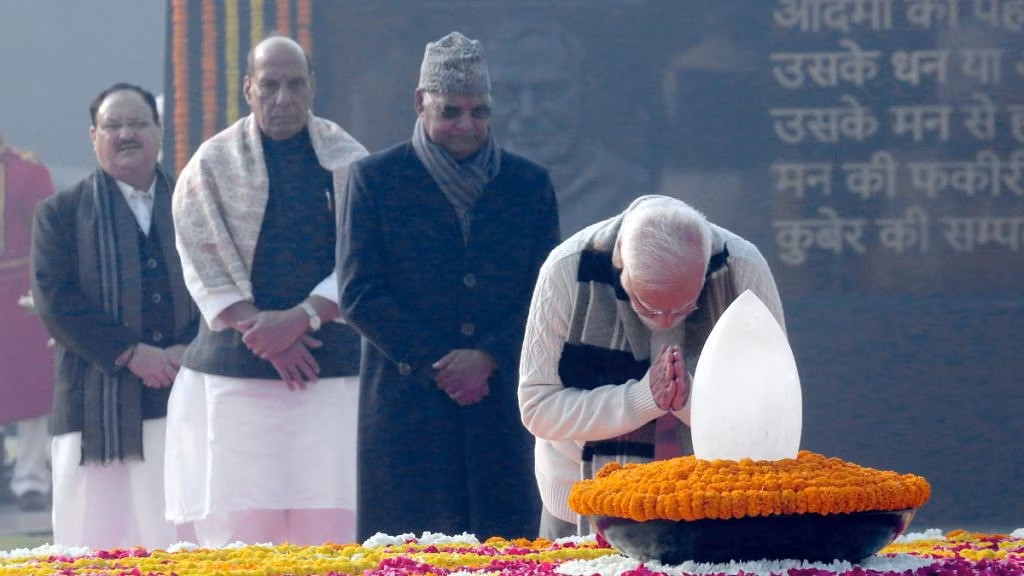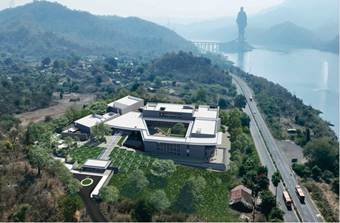On the 100th birth anniversary of former Prime Minister Atal Bihari Vajpayee, President Droupadi Murmu, Vice President Jagdeep Dhankhar, and Prime Minister Narendra Modi led the nation in paying heartfelt tributes at the Sadaiv Atal memorial in New Delhi. Several other dignitaries, including Lok Sabha Speaker Om Birla, Home Minister Amit Shah, and BJP President JP Nadda, also gathered to honor the legacy of the iconic leader.
 Prime Minister Narendra Modi penned a heartfelt article recalling Vajpayee’s significant contributions to India. He described him as a statesman who transformed the nation during a period of political instability and provided stable and effective governance.
Prime Minister Narendra Modi penned a heartfelt article recalling Vajpayee’s significant contributions to India. He described him as a statesman who transformed the nation during a period of political instability and provided stable and effective governance.
“Today, on Atal Ji’s 100th birth anniversary, I remember his monumental contribution to our nation. He rose from humble beginnings to become a towering leader, guiding India into the 21st century with his vision and governance,” PM Modi wrote.
He also highlighted Vajpayee’s ability to connect with people across ideological lines, his pragmatic consensus-building in politics, and his role as the architect of modern India during challenging times.
Vajpayee’s Political Journey
Atal Bihari Vajpayee, born on December 25, 1924, in Gwalior, Madhya Pradesh, was a visionary leader and a stalwart of the BJP. His journey in politics began in 1947 when he joined the Rashtriya Swayamsevak Sangh (RSS). Vajpayee first entered Parliament in 1957 as an MP from Balrampur, Uttar Pradesh.
Known for his oratory and statesmanship, he was introduced by Prime Minister Jawaharlal Nehru to a visiting dignitary with the prophetic remark: “This young man will one day become the Prime Minister of India.”
Vajpayee served as India’s Prime Minister three times:
- 1996: His first term lasted just 13 days due to a lack of majority.
- 1998-1999: His second term saw a year of leadership amidst coalition challenges.
- 1999-2004: His final term marked stability, earning him recognition as the first non-Congress Prime Minister to complete a full tenure.
Legacy and Achievements
Vajpayee’s leadership style was marked by inclusivity, consensus-building, and a pragmatic approach to governance. His foreign policy initiatives enhanced India’s global standing, and domestically, he spearheaded reforms that laid the foundation for economic growth.
As a poet and thinker, Vajpayee’s contributions extended beyond politics, resonating deeply with people across generations. His birthday, December 25, is now observed as ‘Good Governance Day’ to honor his commitment to effective administration.
A Lifelong Legacy
Atal Bihari Vajpayee passed away in 2018, leaving behind an enduring legacy of leadership and statesmanship. As the nation commemorates his 100th birth anniversary, his ideals and vision continue to inspire millions.




